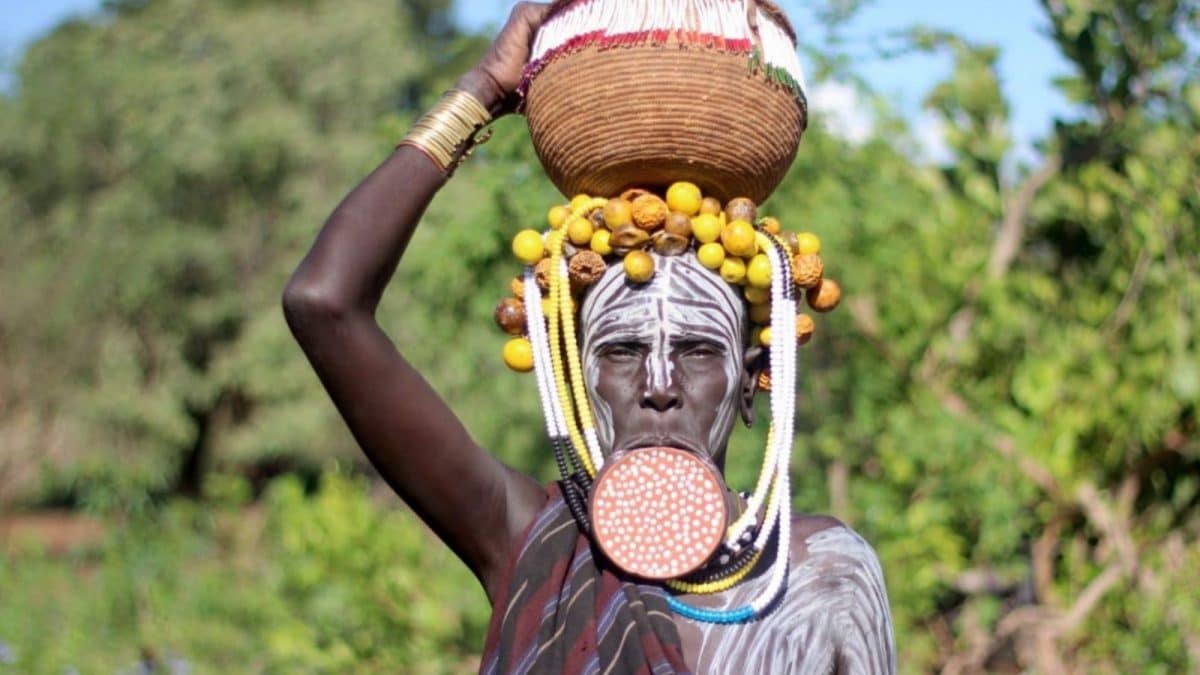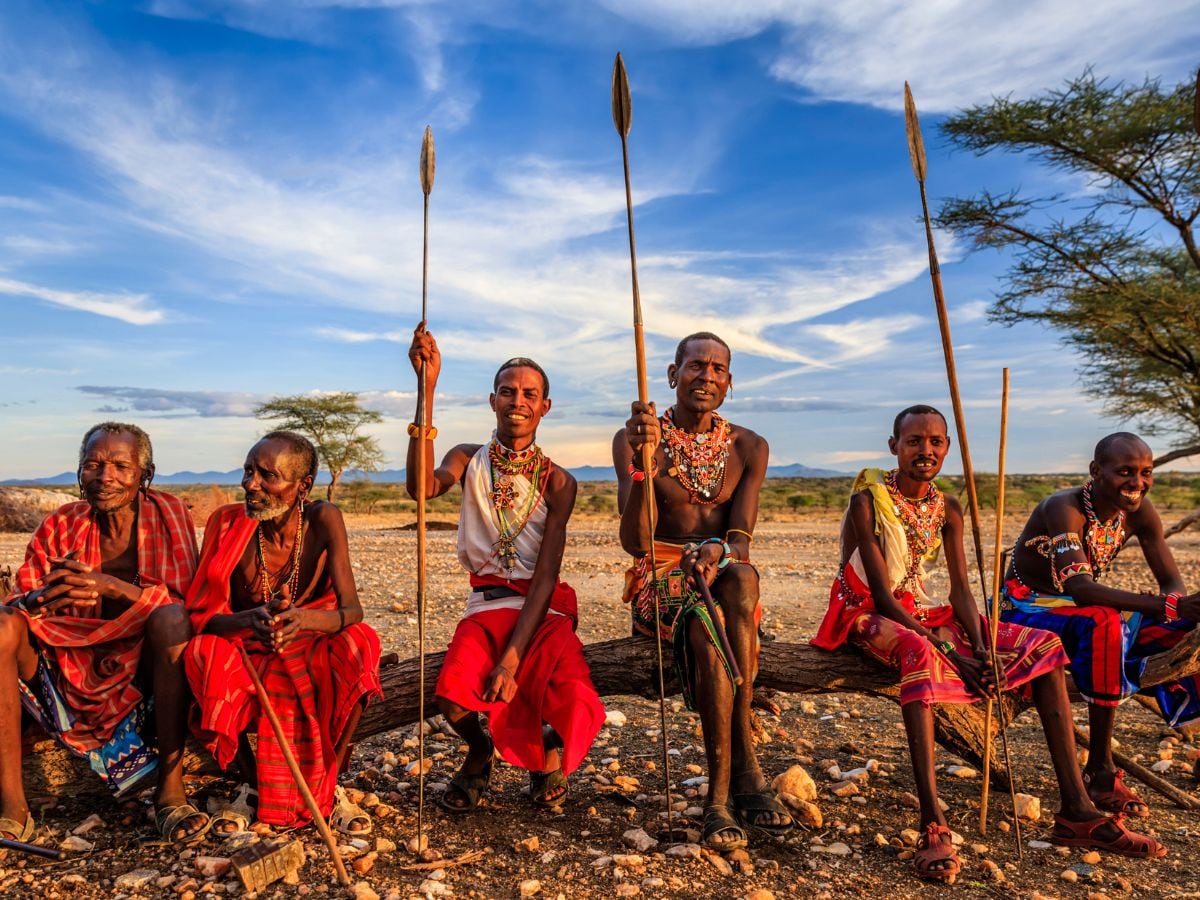
In a remote pocket of Southern Ethiopia, nestled in the harsh terrains of the Omo Valley, lives one of the most isolated and fiercely traditional communities in the world – the Mursi tribe. Known for their distinctive appearance and aggressive defence of their customs, the Mursi practice a ritual of cutting girls’ lower lips and inserting clay plates, often as soon as they reach puberty. This ancient ritual, still very much alive, is considered by many to be one of the most extreme and painful body modifications practiced in the modern era. (News18 Hindi)
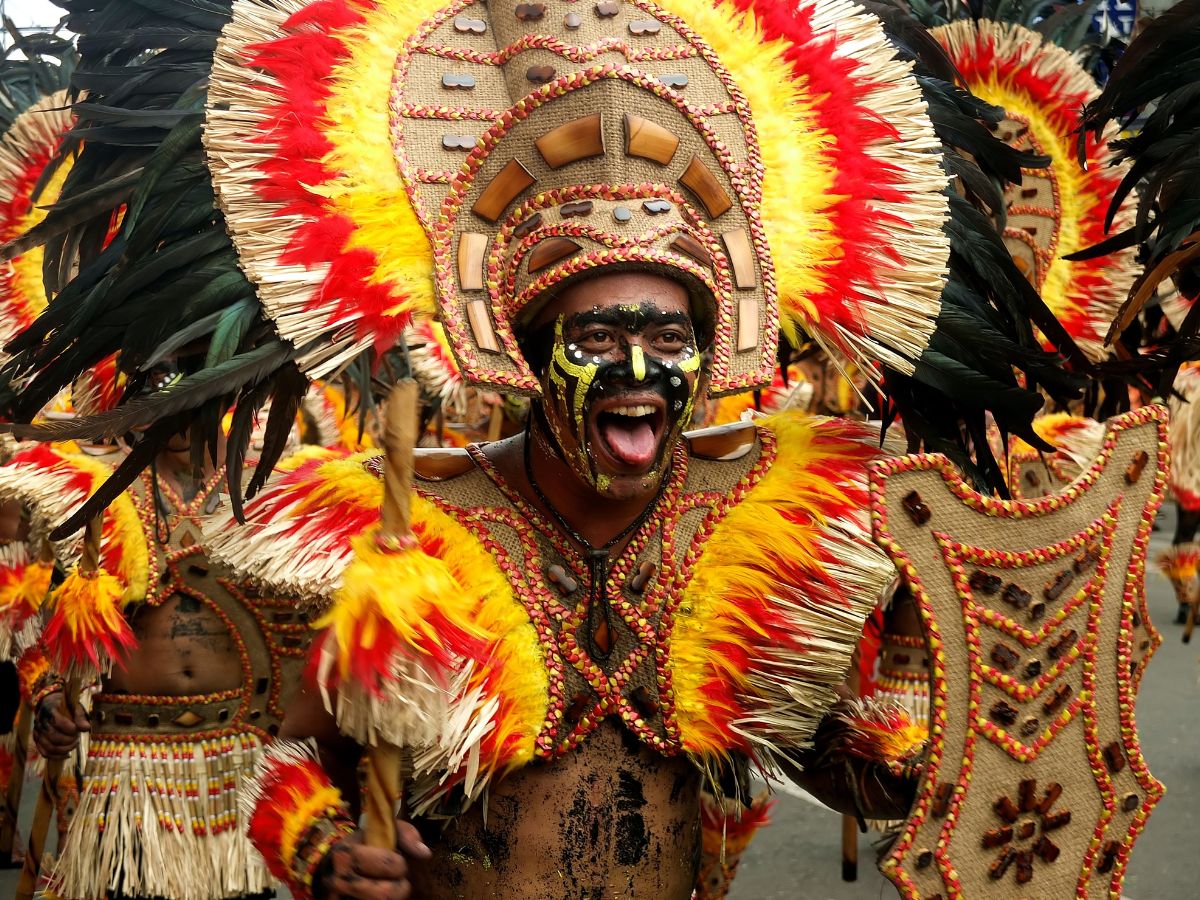
The Mursi people, numbering around 10,000, rely primarily on agriculture and cattle herding for survival. In their society, cows are not just livestock; they are symbols of wealth, status, and even spiritual value. But beyond their economic life lies a cultural world shaped by centuries-old customs that defy modern sensibilities. (News18 Hindi)
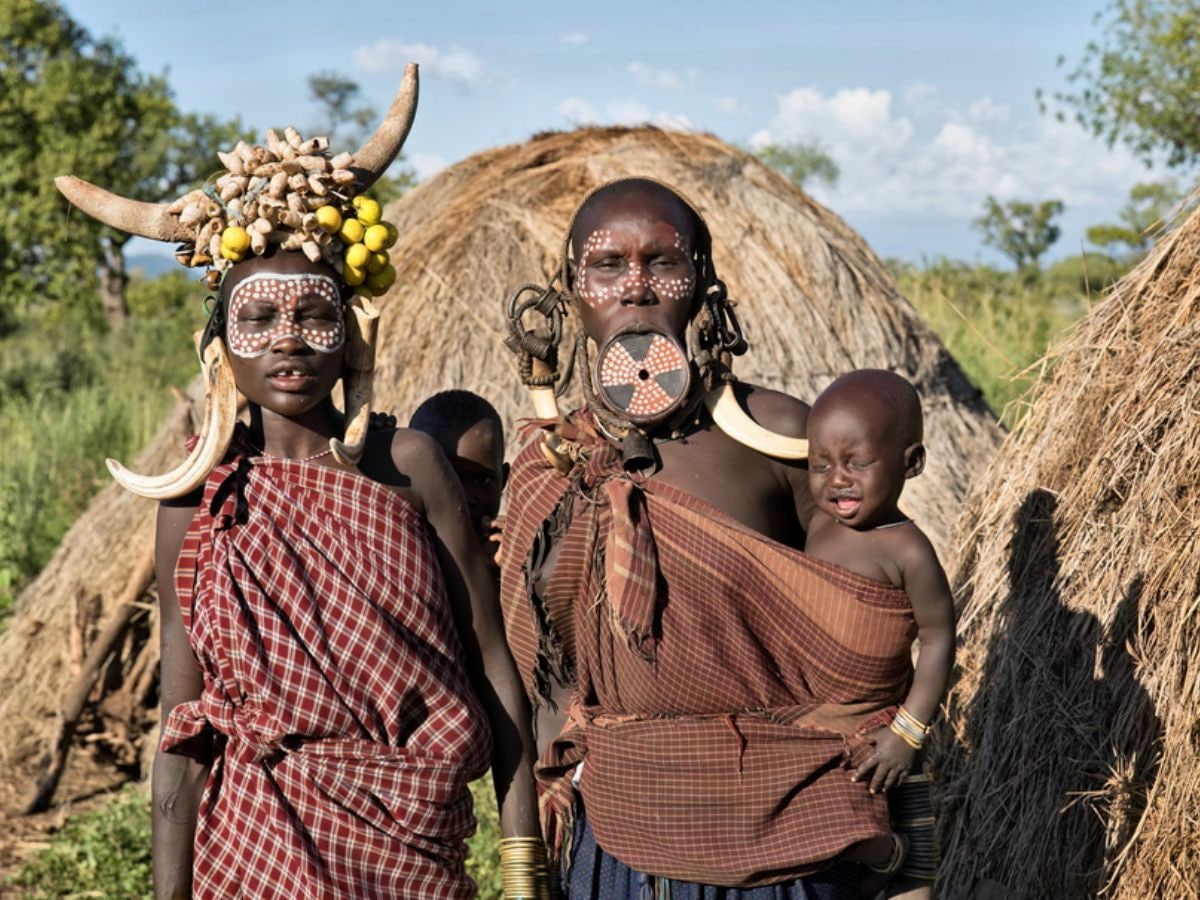
When girls of the tribe begin puberty, a tradition awaits them – one that requires the cutting of their lower lip to create an opening. Into this opening, a small clay disc is initially inserted. Over time, the size of the disc is increased, stretching the lip dramatically until it hangs in a wide, flattened arc. Some women go on to wear plates measuring up to 12 cms or more, with pride. (News18 Hindi)
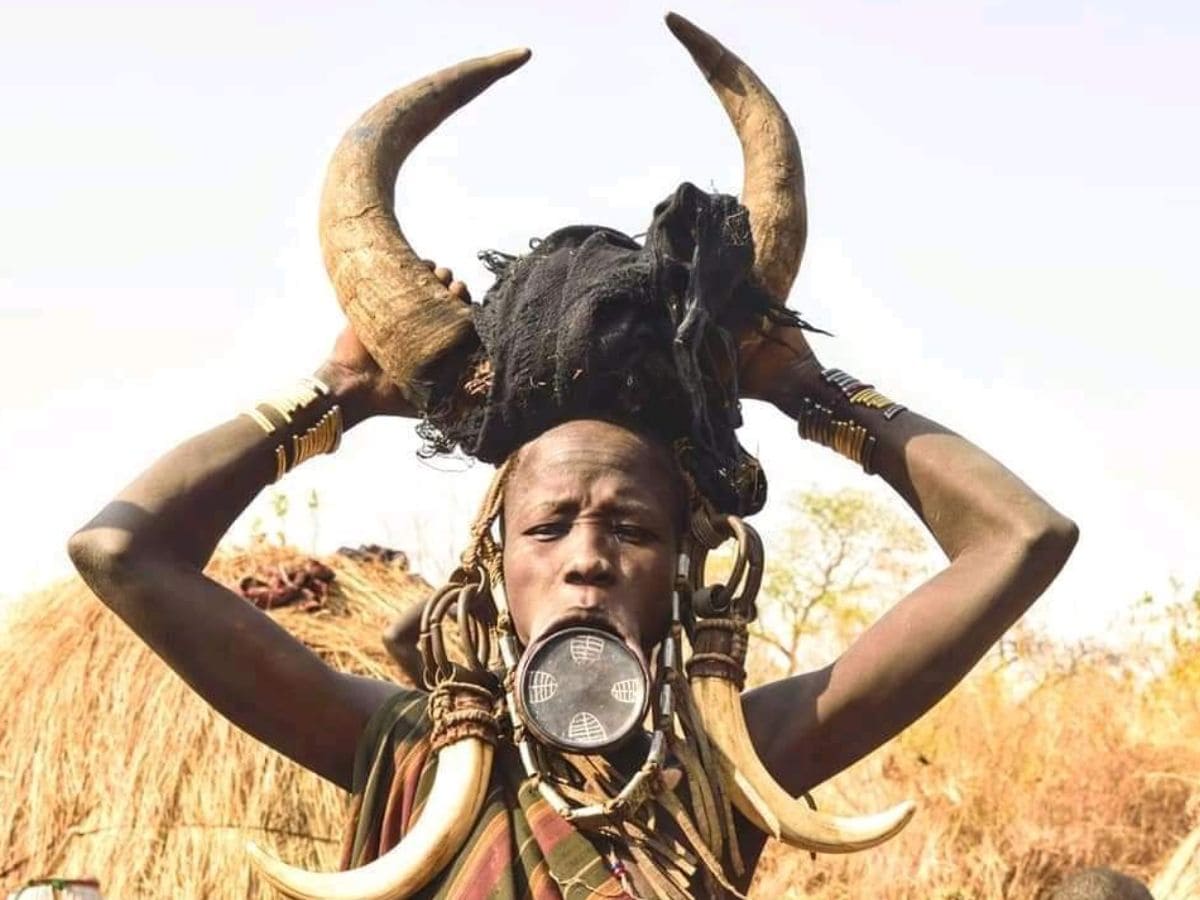
This custom, while deeply painful, is not seen as cruel within the community. Instead, it is a symbol of beauty, dignity, and cultural identity. The larger the plate, the higher the woman’s status and the greater the dowry she can command in marriage. Girls who undergo this rite are respected, and their willingness to bear the pain is viewed as a mark of strength. (News18 Hindi)
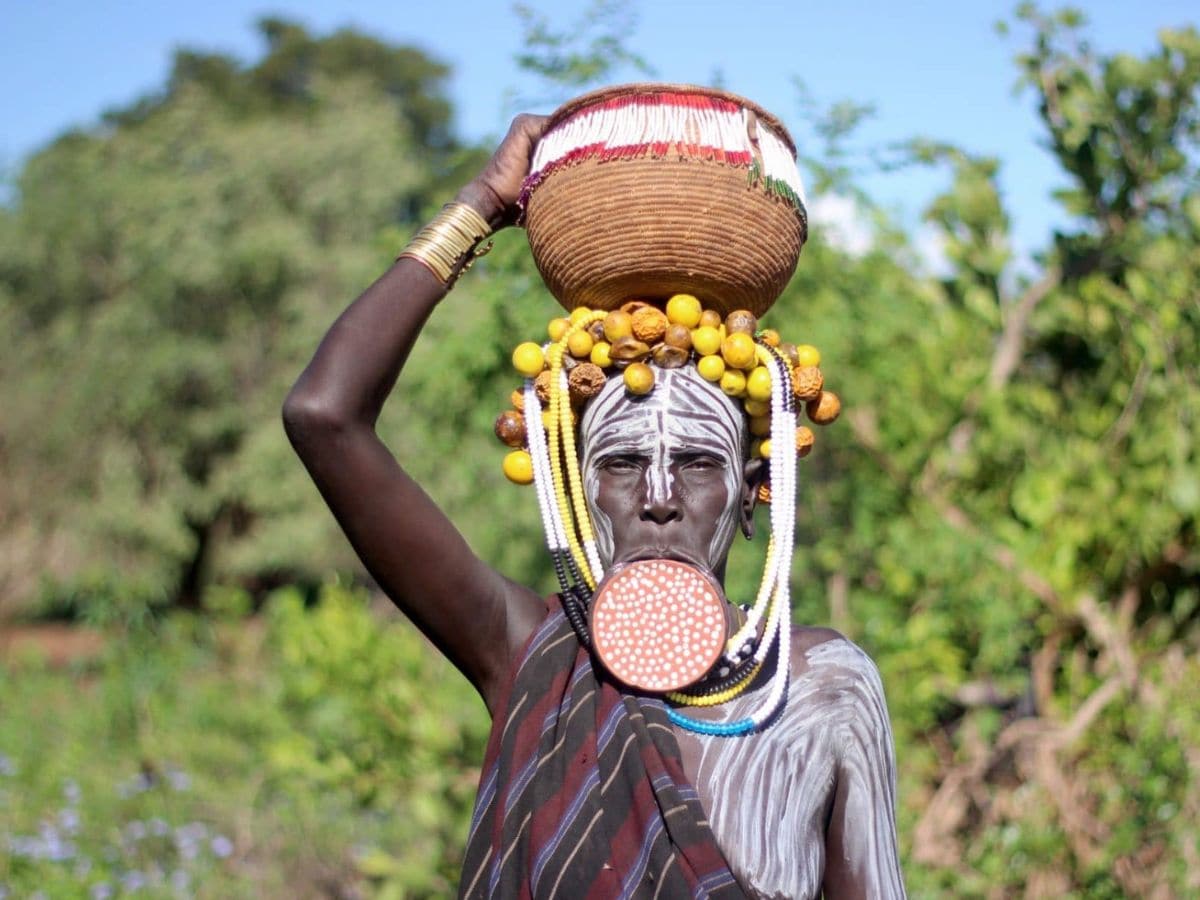
But the roots of this practice are darker than they appear. Historians and anthropologists trace it back to the era of slavery in East Africa. When slave traders prowled the region, beautiful women were often the first to be captured. In response, some Mursi women began disfiguring their faces, particularly their lips, as a deterrent to potential captors. Over generations, this act of resistance transformed into a ritual of pride and identity, passed down from mother to daughter. (News18 Hindi)
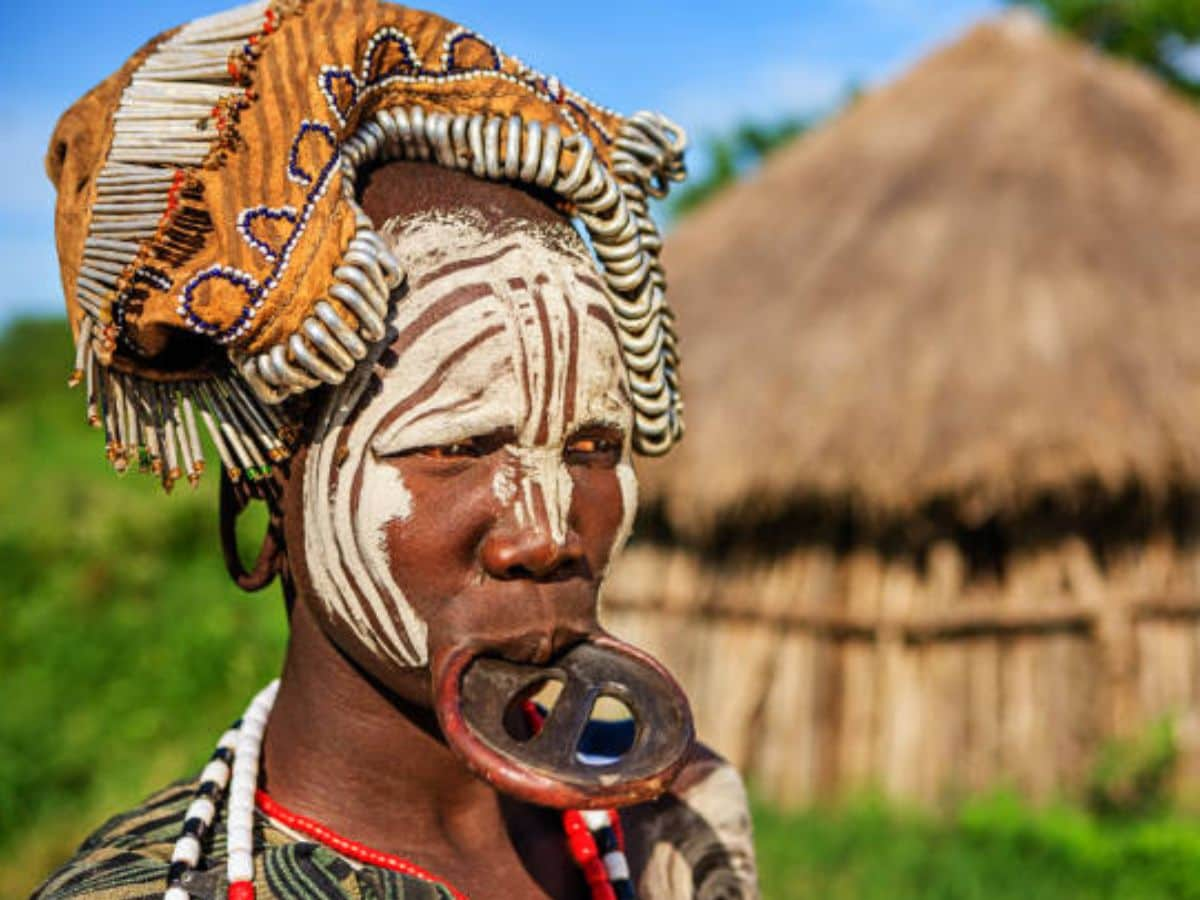
Even today, Mursi women wear their lip plates as declarations of belonging. They do not flinch from the pain or from the questions of outsiders. Instead, they defend the tradition – one that outsiders often see as brutal, but that locals embrace as deeply meaningful. (News18 Hindi)
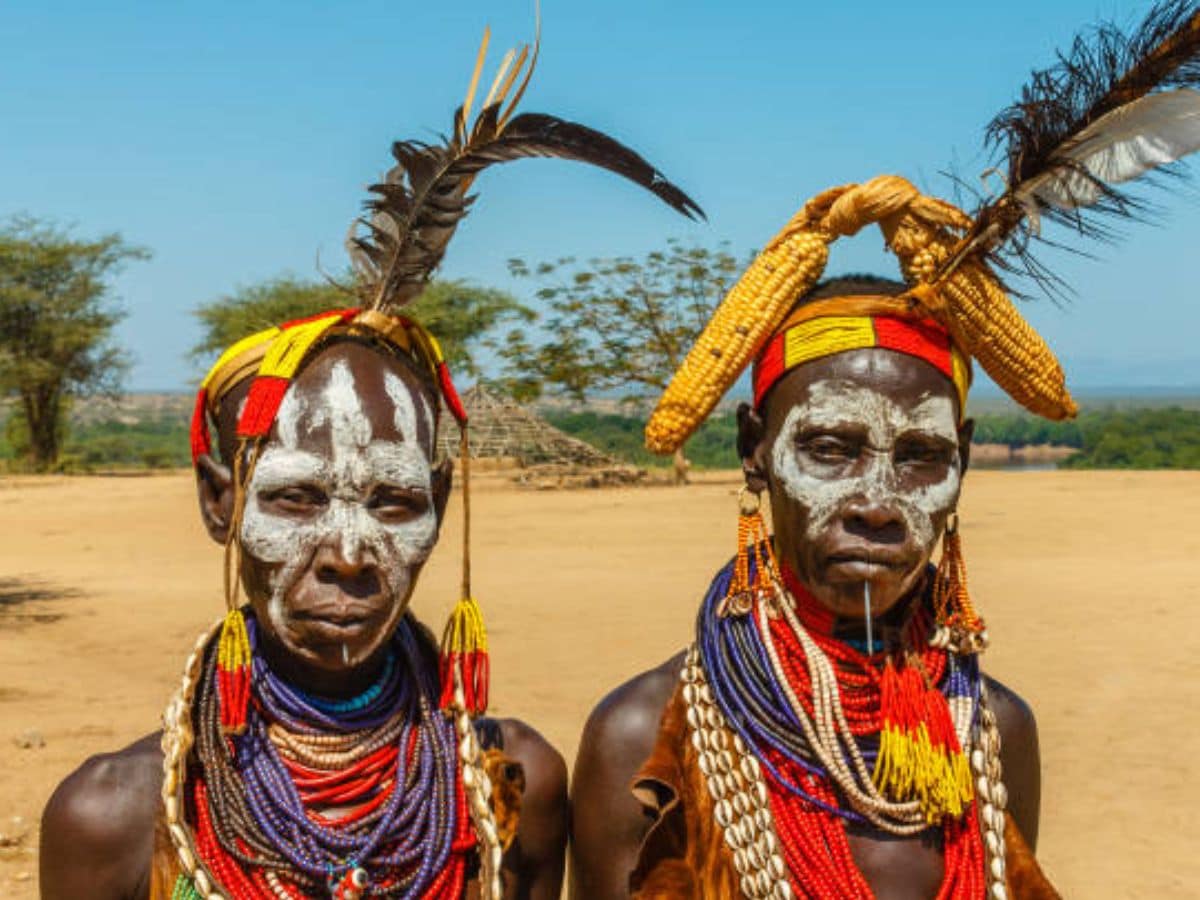
But the Mursi’s image is not shaped by this practice alone. Their fierce aversion to foreign interference adds to their notoriety. Suspicious of outsiders and fiercely protective of their land and culture, the Mursi are known to react with hostility to unwanted visitors, including journalists, tourists, and even researchers. (News18 Hindi)

